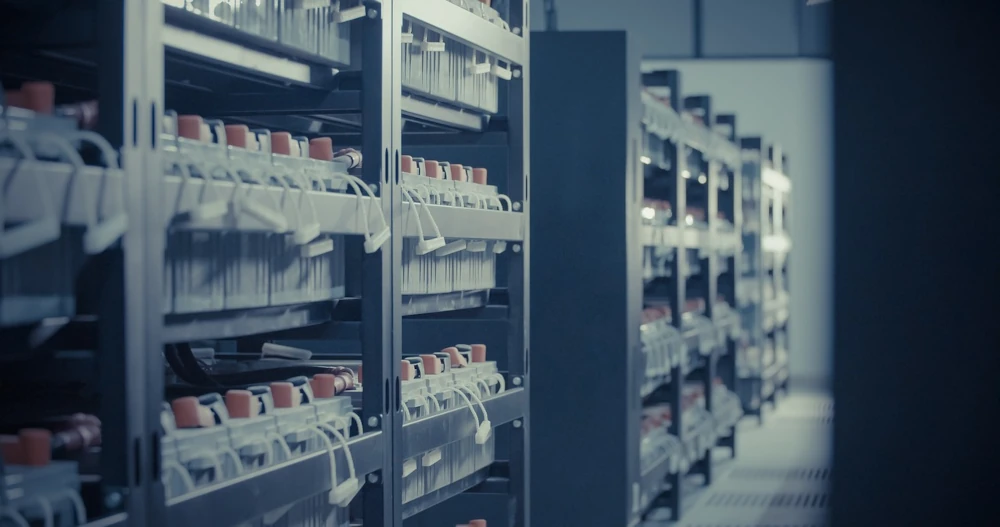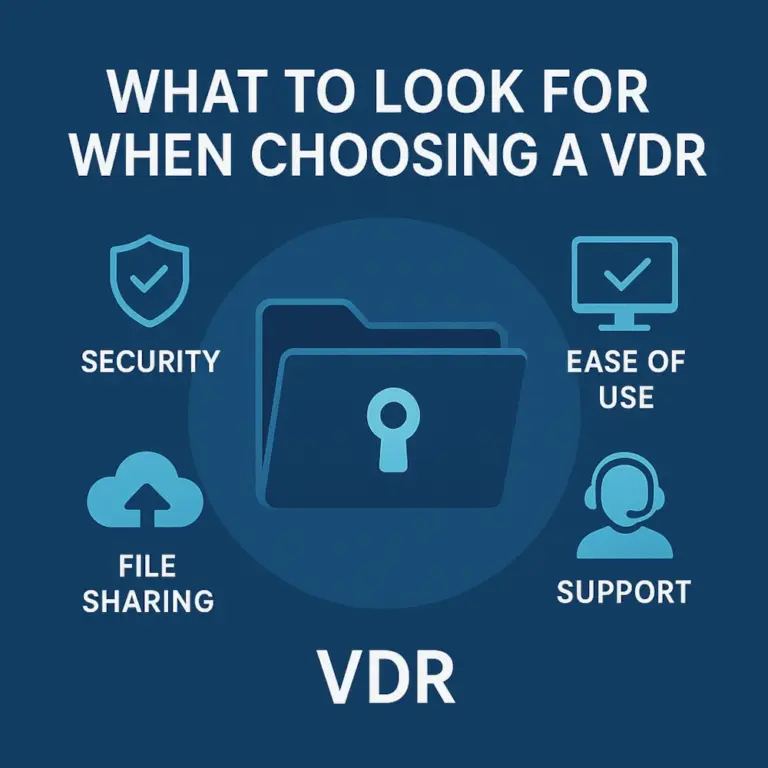Today, security breaches are in the news almost every day. Businesses that care about the protection of confidential information they store and share, start thinking about using tools that can help them with that.
One such tool is dataroom software. In short, this is an online platform that allows secure data storage and distribution. It gives business owners and deal makers peace of mind because it ensures that only authorized users will have access to sensitive data.
So, what exactly is a virtual data room? What distinguishes it from alternative cloud storage options? And should companies actually invest in it? Learn more below.
What is a virtual data room?

A virtual data room (VDR) functions as a safe digital platform that enables secure documentation sharing and storage. Many businesses start choosing it over other cloud storage options like Google Drive and consider it the best choice for managing business deals.
Here is the key data room use case:
- Mergers and acquisitions. When two businesses are evaluating a potential deal, they need to exchange a lot of confidential documents. A VDR keeps everything organized and secure.
- Fundraising and investor updates. Startups and growing companies use a digital data room to safely share financials, business plans, and legal paperwork with investors.
- Legal case management. Law firms and internal legal departments rely on VDRs to manage sensitive negotiations and compliance documentation.
- Real estate transactions. Real estate teams use them to manage documents across multiple properties with minimal fuss.
- Audits and internal reviews. A VDR makes it easier for companies to keep things organized during internal reviews and safely share sensitive info without worrying about leaks.
Why are virtual data rooms becoming the go-to tool?
Let’s explore the four most important advantages of a virtual data room:
- Enhanced security. Traditional file-sharing platforms just can’t offer that level of document protection that VDR providers do. For example, among VDR security features are encryption, access controls, watermarks, and redaction.
- Easier teamwork. A virtual data room keeps everything and everyone in one place. Teams can access files 24/7, leave notes, and stay aligned without the chaos. It’s collaboration, without the clutter.
- More efficiency. Data room software can streamline your workflow. You can quickly upload files, create folders, and find documents that you need with the advanced search. You also don’t need things like paper, postage, and storage space anymore. This saves both time and money. Besides, this is more eco-friendly.
- Staying compliant. Organizations achieve compliance assistance through dataroom services. Data rooms can track who viewed, edited, or downloaded a document. Therefore, data management becomes less stressful.
Who should use a digital data room?
VDRs aren’t just for massive corporations. Small businesses, startups, and solo professionals can benefit too, especially if they’re dealing with private documents or sensitive negotiations.
Here are some everyday use cases:
- A startup preparing to pitch investors can share its business plan and term sheets securely.
- A real estate agency can centralize contracts, floor plans, and buyer info.
- A medical research team can protect and organize clinical trial data when partnering with external labs.
Whether you’re working on a deal, raising funds, or simply managing sensitive internal files, a VDR is at your service.
What to look for when choosing a VDR
Virtual data rooms come in all shapes and sizes. So, how can one choose the best option?
Here are a few questions that you can ask yourself:
- How many people will need access?
- How much storage space do you need?
- What kind of documents will you be storing?
- Do you need tools like electronic signatures or activity tracking?
- How important is customer support?
Besides, pay attention to the following:
- Security features. Look for a data room that offers features like advanced encryption, multi-factor authentication, and role-based access controls.
- User interface. Make sure the platform is intuitive and easy to navigate.
- Customization. Many businesses want to be able to customize a VDR, adding their own company logo and brand colors. If you need that too, make sure a VDR provider offers it as well.
- Audit trails and reporting. Tracking who accessed documents and what they did with the documents is also a must for a VDR. This way, you stay compliant.
- Scalability. If your business grows, a data room should be able to grow too.
Is a virtual data room worth it?

In most cases, absolutely. If you’re dealing with confidential or regulated information or working with outside parties, a VDR is more than just useful — it’s a must.
Here’s what you gain:
- Faster workflows and fewer bottlenecks
- Strong legal and regulatory compliance
- More professional interactions with investors and partners
McKinsey & Company reports that organizations that choose secure digital tools are better prepared for today’s new business realities. Secure document management is part of this preparedness.
Conclusion
Modern businesses consider virtual data rooms a critical business tool. Such technology speeds up deal completion and enhances business performance. It protects information and saves your time and money. If that’s what you’re looking for, a virtual data room is definitely worth the investment.


